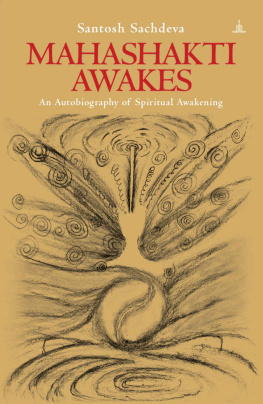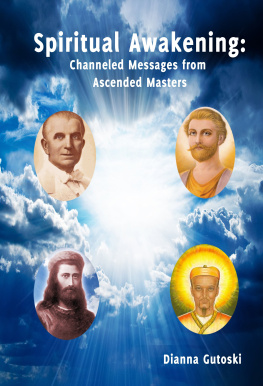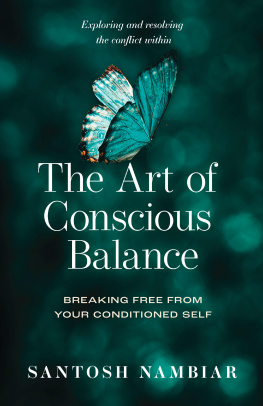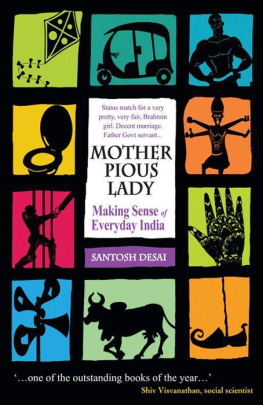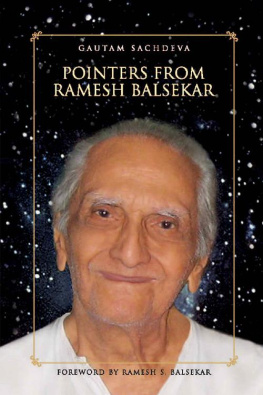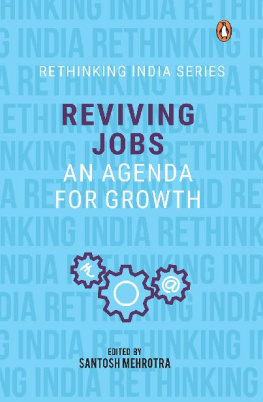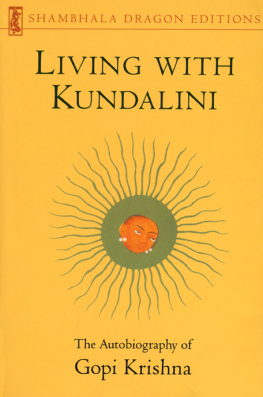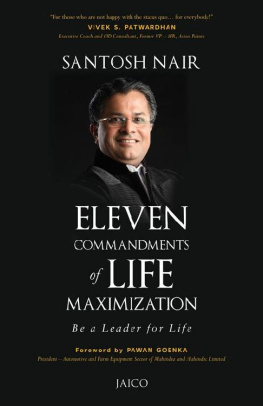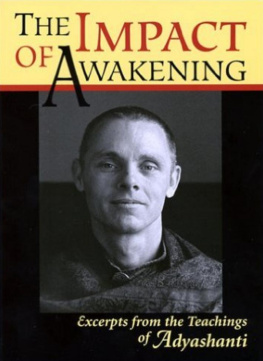Santosh Sachdeva - Mahashakti Awakes: An Autobiography Of Spiritual Awakening
Here you can read online Santosh Sachdeva - Mahashakti Awakes: An Autobiography Of Spiritual Awakening full text of the book (entire story) in english for free. Download pdf and epub, get meaning, cover and reviews about this ebook. year: 2018, publisher: Yogi Impressions, genre: Non-fiction. Description of the work, (preface) as well as reviews are available. Best literature library LitArk.com created for fans of good reading and offers a wide selection of genres:
Romance novel
Science fiction
Adventure
Detective
Science
History
Home and family
Prose
Art
Politics
Computer
Non-fiction
Religion
Business
Children
Humor
Choose a favorite category and find really read worthwhile books. Enjoy immersion in the world of imagination, feel the emotions of the characters or learn something new for yourself, make an fascinating discovery.
- Book:Mahashakti Awakes: An Autobiography Of Spiritual Awakening
- Author:
- Publisher:Yogi Impressions
- Genre:
- Year:2018
- Rating:3 / 5
- Favourites:Add to favourites
- Your mark:
- 60
- 1
- 2
- 3
- 4
- 5
Mahashakti Awakes: An Autobiography Of Spiritual Awakening: summary, description and annotation
We offer to read an annotation, description, summary or preface (depends on what the author of the book "Mahashakti Awakes: An Autobiography Of Spiritual Awakening" wrote himself). If you haven't found the necessary information about the book — write in the comments, we will try to find it.
Mahashakti Awakes: An Autobiography Of Spiritual Awakening — read online for free the complete book (whole text) full work
Below is the text of the book, divided by pages. System saving the place of the last page read, allows you to conveniently read the book "Mahashakti Awakes: An Autobiography Of Spiritual Awakening" online for free, without having to search again every time where you left off. Put a bookmark, and you can go to the page where you finished reading at any time.
Font size:
Interval:
Bookmark:

Santosh Sachdeva


MAHASHAKTI AWAKES
First published in India in 2018 by
Yogi Impressions LLP
1711, Centre 1, World Trade Centre,
Cuffe Parade, Mumbai 400 005, India.
Website: www.yogiimpressions.com
First Edition, August 2018
Copyright 2018 by Santosh Sachdeva Back cover photo: Nikhil Kripalani
Text and Illustrations copyright Santosh Sachdeva used with permission from Yogi Impressions
All rights reserved. This book may not be reproduced in whole or in part, or transmitted in any form, without written permission from the publisher, except by a reviewer who may quote brief passages in a review; nor may any part of this book be reproduced, stored in a retrieval system, or transmitted in any form or by any means electronic, mechanical, photocopying, recording, or other, without written permission from the publisher.
ISBN 978-93-82742-95-1
Dedicated to
my loving parents
CONTENTS
MY EARLY DAYS
I was born in 1939 at Sialkot, a flourishing city in what was then known as West Punjab. Ours was a fairly wealthy Punjabi Hindu Brahmin family, who lived in the upscale area known as Greenwood Street. The family continued to live in a rambling old three-storeyed house, although my father had constructed a brand new modern house next to the old house. The new house was quite a landmark in the area, mainly because it was connected to the existing old house by a high bridge that spanned the street. A large private ground fronted the old house, which had a stable for the horse and carriage at one end and a barn for the two cows at the other. Here also was a garage for the station wagon that my father had bought from a British officer, who was leaving for England after serving his tenure. In the centre of the ground were swings for us children and our friends to play.
As a child, I remember going for rides in a tonga, which was drawn by a sturdy chestnut-brown horse and driven by our old retainer, Paayi, a sardar with a salt-and-pepper beard. If the horse came across a ramshackle hut along the way, he would start neighing and kicking and halt in his tracks, creating quite a panic among us. I often felt petrified and would anxiously wait for him to calm down. Otherwise he was a fairly mild creature, who would allow our younger brother to run under his belly and in and around his legs without kicking up a fuss.

My fatherOm Prakash Sharma

My motherJanki Devi Sharma
Our father was a manufacturer of sporting goods, including cricket bats, hockey sticks, and footballs. His workforce was comprised mainly of Muslim skilled craftsmen, as well as three invaluable retainersPaayi, Prem, and Babu, who was Prems younger brother. His clientele were mainly British citizens. Besides supplying his sporting goods to the British soldiers stationed in India, he also exported a large part of his goods to England during the days of the British Raj. The close business ties my father held to these British soldiers led eventually to a more familial link: in fact, the new house my father had built was inaugurated by the chief British officer whom my parents had once invited for high tea in the houses so-called Drawing Room. That was the only room to have been hastily furnished for the occasion with sofa sets, tea tables, and tapestries imported from England.
The rest of the new house remained unoccupied and unfurnished, with all the imported furniture, chinaware, tapestry, and lighting remaining unpacked in cases in various rooms. Perhaps there was a sense of foreboding of what was soon to come.
My mother sometimes spoke in later years of how I almost had my right foot amputated when I was barely five months old and how I was fortunately saved from spending an entire lifetime as a cripple. My right ankle had developed a boil that had turned septic. Her mother-in-law suggested that the local barber be called in to give it a simple nick and cut to clean it up. My mother recounts that when that day came, every family member, unable to bear the sight of the barbers razor glistening in his hand, left the room. Meanwhile, my mother was left alone to stoically hold me, a screaming infant, in her arms, while the barber made the incision and scraped away at the tissue and bone to remove the infection. He explained that he had to do this to kill the worms, which could be seen wriggling around in the pus. He then applied some disinfectant to the wound. Even after days, the wound continued to ooze and refused to heal.
My mother then took me to the Mayo Hospital in Lahore, where a group of enthusiastic young interns gathered around us. It was wartime then, and there wasnt much room in the hospital. But seeing my mothers plight, one of the interns said that by sheer luck there was a bed available in the crowded hospital, where they recommended that my right foot be amputated without further delay. My mother said that she alone could not take such a major decision without consulting my father. She thanked the intern and made good her escape.
She returned to Sialkot and, as luck would have it, a well- known Bengali surgeon had just arrived in town. I was soon taken to his clinic. He examined the wound and gave my mother the assurance that my ankle was nothing to be alarmed about. Apparently, a splinter of the bone had been inadvertently left inside by the barber, which was what was causing all the trouble. He then very efficiently removed the splinter and put a plaster cast on my foot, leaving a small hole in it to drain out the fluid. I learned to walk and ride a tricycle while still wearing a plaster cast, which ran almost up to the knee of my right leg. The wound soon healed, leaving just a rather ugly scar, one which is still visible to this day on my right ankle.
I was a thin and dark child. The simile my mother sometimes gave me was, You were as dark as the back of a tava. The matter of my foot mercifully, and perhaps providentially, not being amputated proved a huge relief for everyone. It would not only have been painful for them to observe but also a matter of some future concern to have a dark, skinny girl with a physical handicap.
In the wake of Partition in 1947, when the Hindu-Muslim riots erupted, my fathers employee Rashid told my father one night that rioters were planning to burn the areas around our house. Heeding Rashids advice to leave our house, my father sent us to the bungalow of our family physician, Dr. L. C. Dutt, a place situated in the relatively safe zone of the Cantonment. From the bungalows terrace, we could see spirals of smoke rising from different quarters, which were alarmingly close to the street on which we lived.
One day, our father was strolling on the terrace and gazing at the burning city when he spotted a man in the street pointing a gun toward him. This naturally got my father quite unnerved, and he quickly came down from the terrace to conceal himself from the gunman. Rashid, who sometimes came to visit us in the Cantonment, told our father that he and his people could no longer ensure our safety in the bungalow and advised my father to get his family on a train leaving for Jammu until things settled down. After saying this, Rashid managed to get tickets on a train that was scheduled to leave Sialkot in a few days. Our father meanwhile went back with him to the old house to collect some belongings.
Font size:
Interval:
Bookmark:
Similar books «Mahashakti Awakes: An Autobiography Of Spiritual Awakening»
Look at similar books to Mahashakti Awakes: An Autobiography Of Spiritual Awakening. We have selected literature similar in name and meaning in the hope of providing readers with more options to find new, interesting, not yet read works.
Discussion, reviews of the book Mahashakti Awakes: An Autobiography Of Spiritual Awakening and just readers' own opinions. Leave your comments, write what you think about the work, its meaning or the main characters. Specify what exactly you liked and what you didn't like, and why you think so.

